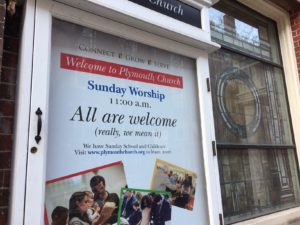You know – FAANG. Facebook, Amazon, Apple, Netflix, Google! What’s the next big FAANG, and why should you care?
I wonder if they gathered in the local Brau Haus pondering what would follow Gutenberg’s printing press? Henry Ford’s move from hand crafted to line produced was a game changer. Ever think about what will take the place of Al Gore’s invention of the internet? Steve Jobs and Bill Gates initially helped to automate tasks that might have taken hours or days down to minutes. The blessings and curses seemed discernable regarding mass production, easy accessibility of goods, accelerated forms of communications and quality of life. Automation and speed were the name of the game.
I was excited to find I would be required to learn FORTRAN computer programming when attending Gettysburg College, a strong liberal arts college (we also were required to swim). We ran data on stacks of punch cards to generate results from research. That beast of a machine automated the data I compiled and fed to it. I still needed to interpret what the results meant. Just a few years before 2001: A Space Odyssey was all the rage in the movies. This 1968 film tells a different story. HAL (aka IBM) starts calling the shots with astronaut Dave. HAL was not simply a machine for automation, HAL was autonomous. Truth be told, I did try to talk to the computer at school but never got a response.
Then there is Joshua, the computer Matthew Broderick, David, used to play War Games in the 1983 film. Ultimately nobody won and Joshua invited David to a “nice game of chess.” Joshua, like HAL, was not simply a machine going through its paces. Joshua, C-P30 and R2-D2 make us feel somewhat comfortable with autonomous machines. They’re cute in their own way. (HAL is definitely not warm and fuzzy.)
What’s the next big FAANG? Boston Dynamics would tell you drones are yesterday’s technology. They are building “thinking” robots with names like Spot and Sand Flea. They are leaps above the Jetson’s Rosie the Robot. While Lyft drivers still get lost even using Waze, smart cars will be perfected and automate driving at some point. Will a line be crossed for you when you get into the car and the car decides where you are going to go rather than you making the call?
Artificial intelligence (AI), autonomy, goes far beyond automation. We all want help with our schedules. We want more time. Imagine everything you could get done in the passenger seat if the car was in charge of the driving and knows how you like your coffee. The United States is in a race with other super powers to make lethal action a matter of AI decision making. Should Siri or Alexa be deciding how nations relate to one another? (Honestly, Alexa doesn’t always get my music right.) Currently the U.S. requires at least one human intervention before potentially lethal action is taken by any war machine. That isn’t true for every nation. Will human intervention always be true for the U.S.? The next really big FAANGs are not headed to your kitchen and not hitting the road. AI will begin “deciding” acceptable numbers of human casualties unless we take a deep breath and consider what that means.
We are facing issues requiring ethical thought and socially responsible consideration. Who decides? I think Dave would caution us and Joshua would tell us to play chess. How does our faith inform our thinking? How do your beliefs inform your thinking? I don’t have the answers, and I’m not asking Siri. I do know I’ll continue to ask the questions and look carefully for the next big FAANG. I hope you’ll join me.


